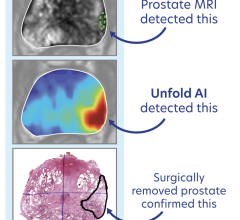
January 13, 2016 — A recent article in the American Journal of Men’s Health found that men and their health providers are not having important discussions when it comes to prostate cancer screening and treatment.
As a UNMC urologist who treats prostate cancer, Chad LaGrange, M.D., subscribes to the American Urological Association’s guidelines that recommend screening for men 55-69 years of age and men younger than 55 years of age whose family member had prostate cancer or are African-American.
Since the U.S. Preventive Services Task Force recommended in 2012 against prostate-specific antigen (PSA)-based screening – a simple blood test – a number of organizations have begun to caution against routine population screening. At the same time, there are some organizations that continue to recommend PSA screening.
“Nobody is willing to make strict guidelines concerning prostate cancer screening,” said LaGrange, associate professor and the Edward and Sally Malashock Chair of Urologic Surgery at the University of Nebraska Medical Center (UNMC), who was one of the authors of the article. “Part of the problem is the current recommendations for screening are vague. The task force study has some flaws.
“Most of the guidelines today say it’s OK to screen, but if screening is done, health providers should really discuss with the patient what screening means and what the downfalls are and what the advantages are. This is called shared decision making.”
LaGrange and researchers from UNMC and the University of Memphis wanted to know if this “shared decision making” is happening between providers and patients, which patients are getting a good discussion about prostate cancer screening and which patients aren’t.
Lead author of the study is Soumitra Bhuyan, Ph.D., assistant professor in the Division of Health Systems, Management and Policy at the University of Memphis.
Researchers looked at 1,700 patient questionnaires nationwide, which asked questions about PSA screening to determine if physicians were going over the risks and benefits before doing the screening or explaining how prostate cancer is treated.
The researchers measured whether four areas were communicated with patients. Below are the areas and results:
- 17 percent of patients were told that some experts disagree about whether men should have PSA tests;
- 23 percent were told that some types of prostate cancer are slow-growing and need no treatment;
- 25 percent were told that the PSA test isn’t always accurate in diagnosing prostate cancer; and
- 31 percent of patients were told that treating any type of prostate cancer can lead to serious side effects such as urinary incontinence and erectile dysfunction.
LaGrange said the study showed only 9 percent of patients had all four areas discussed with them.
His advice for men with the conflicting information?
“The only way to find the serious prostate cancer cases is to screen,” he said. “If there’s a diagnosis, then men should get a second opinion to decide whether it needs to be treated based on the guidelines and all clinical information available.”
LaGrange said the debate should focus not so much on prostate cancer screening but rather on over-treating prostate cancer.
“Some cancers don’t need to be treated. We can watch patients and simply follow them,” he said.
LaGrange said one of the biggest take home messages from the study is that men should establish a long-term relationship with a primary care physician.
“This speaks to the physician-patient relationship. An open discussion is more likely with a provider with whom patients have a long-term relationship,” he said.
Other UNMC researchers who were part of the study include Aastha Chandak, Niodita Gupta, M.D., and Sudhir Isharwal, M.D.
For more information: www.unmc.edu


 April 17, 2024
April 17, 2024 








